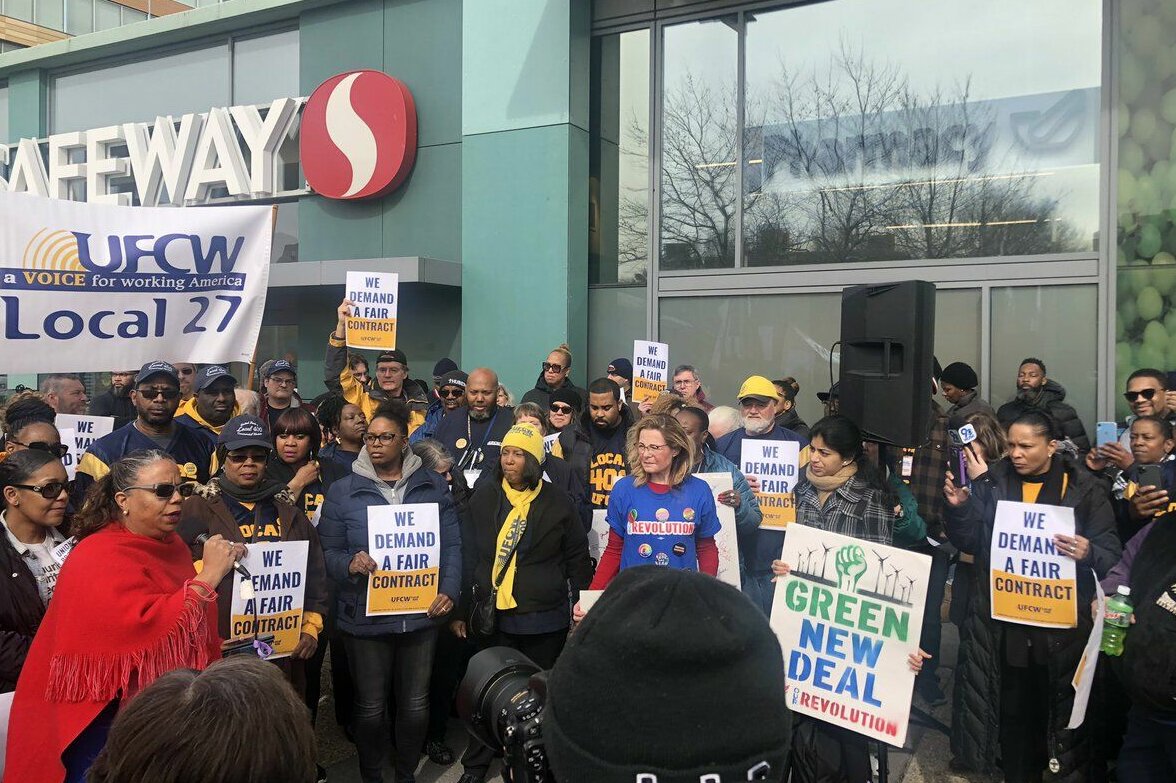
After six months of negotiations, it is crunchtime for 10,000 D.C.-area union grocery store workers to reach a deal with Safeway. If not, they plan to strike.
“The main sticking point at this point is the pension,” said Jonathan Williams with United Food and Commercial Workers Local 400.
The union has been negotiating with Albertsons, which acquired Safeway in 2015. When they both met again Tuesday, there was no deal.
“We have 50,000 participants who Safeway is putting at risk by refusing to fully fund the pension, as is their obligation under our current contract and our pension fund,” Williams said.
In recent weeks, Williams said the parties have made progress on a number of issues, including health care, wages and other benefits.
“In summary, we know that we are living up to our pension obligations,” Safeway responded.
But the way negotiations work, any proposals are contingent on other proposals.
“So we can’t rightly say we’ve settled other issues. Until we have a full contract, we don’t have a contract at all,” Williams said.
On Thursday, union leadership will present the current Safeway contract to members, and if they reject it, Williams said the workers will hold a strike vote.
“We are committed to remain at the bargaining table to work through our challenges and reach an agreement that rewards our employees,” Safeway said in a statement last month.
If a two-thirds majority votes to strike, the union will transmit a notice to Safeway to cancel the contract extension.
“Then 72 hours after transmitting that notice, we are able to go on strike if we have the authorization of our members,” Williams said.
On Albertson’s companies website, the statement goes into further detail regarding the pension dispute.
“The Unions claim that Safeway should be required to fully support approximately 50,000 retirees and employees who draw or plan to draw their benefits from the pension fund if the fund becomes insolvent. However, the fact is, the Government through the Pension Benefit Guaranty Corporation (“PBGC”) guarantees the majority of the pension benefits if the pension plan goes insolvent. The portion that is not covered by the PBGC, the Company has proposed to cover.”








